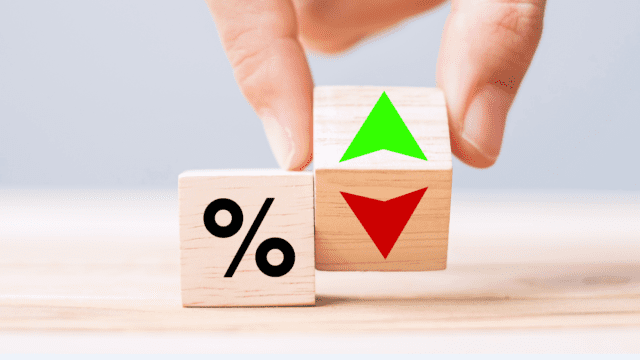US. Rising Interest Rates Change the Math on Pensions for Some Would-Be Retirees
Higher interest rates are good for our cash and checking accounts but are not always good for pension holders. Rising interest rates have an inverse relationship to a pension’s lump-sum value. As interest rates increase, the value of a pension holder’s lump sum could decrease. Because of this, I am seeing more pension holders who want to take a lump sum do so now vs. waiting.
I am also seeing annuity rates improve with rising interest rates, pushing annuity income potentially higher than pension income (see chart below). There is much to consider if you are a current pension holder. Let’s review.
If you have a pension, you may be eligible for a lump sum – not all pensions have a lump-sum option. The lump sum is a one-time payment in lieu of the traditional single life or joint life pension income. The lump sum can be transferred to an IRA tax-free. Once in the IRA, the lump sum can be invested in mutual funds, stocks, CDs, an annuity or most other investments (there are some limitations
Here are four reasons pensioners move a lump sum to an IRA, including the drawbacks:
- More control. If you move a pension lump sum to an IRA, you control how the money is invested and when to take distributions (or not). In effect, an IRA gives you more control over the pension asset. Of course, you could deplete the account faster if you end up spending too much, or the account can lose money if you invest in the stock or bond market. Conversely, if you fail to invest the lump-sum IRA properly, i.e. stay in low-yielding cash or CDs, it may not grow as much as the pension.
- Money for the kids. A pension is first and foremost a retirement planning tool. The kids are important, but not the sole reason for how to make your decision. The nice thing about moving a lump sum to an IRA is the children can inherit the remaining account balance at death if they are primary or secondary beneficiaries. Not so if you elect for pension income, the income stops at the second death if you elected a joint option, there is no remaining asset for the kids to inherit Keep in mind, children of a deceased parent must deplete the IRA account by year 10, according to IRS rules(opens in new tab). Also, IRA withdraws are income taxable, just like pension income (state tax laws vary).
- More potential growth. A pension is considered a conservative investment, usually earning low-single-digit returns. Low risk may suit your needs, but if you want more growth, you can move the lump sum to an IRA and invest accordingly. Of course, you can also lose money in the IRA, so you must know what you are doing if you choose to invest with an IRA.
- You never know with pensions. Pensions may be guaranteed by the Pension Benefit Guaranty Corporation(opens in new tab), but up to certain amounts. While the guarantee is comforting, I am skeptical. The PBGC can change its rules and guarantees. Also, if you have a pension from a company that runs into trouble, is bought or sold or goes bankrupt, I do fear it may have to rework its pension offer.
- Moving a pension to an IRA may not make sense if the pension payout ratio is higher than your withdraw rate. You should also calculate the rate of your return on your pension and evaluate the tradeoffs. A qualified professional can also help you decide what is right for your overall retirement.
Read more@Kiplinger
274 views










